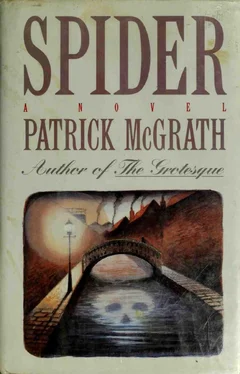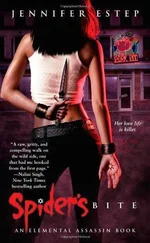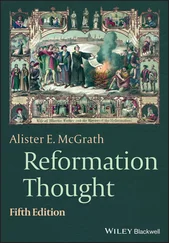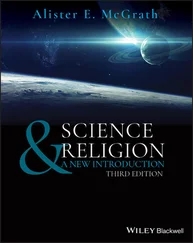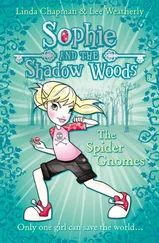“I went somewhere else after a bit,” my father said angrily. “What were you down the Dog for? It’s not Saturday.”
She didn’t answer this, just sat there staring at him as the tears came flooding down her cheeks, not even bothering to wipe them away.
My father shrugged, dropping his eyes and rubbing his feet once more. “I went down the Earl of Rochester.” I heard him say it, and I thought, why would he tell her that? How could he go down there again, with her likely to come looking for him? “What are you chasing after me for?” he said angrily. “Can’t a man have a drink after his work?”
“I won’t live like this,” said my mother, quiet again after her outburst, and wiping her face with her apron. “I wasn’t meant to live like this.”
“That’s not my fault,” said my father, as a voice in his head said: oh yes it is.
“Yes it is,” said my mother, for an uncanny moment becoming the articulation of his conscience.
“It’s not!” he shouted—and I could stand no more. Down the stairs I pattered, along the passage, barefoot and feigning sleepiness. My mother turned toward me, and the sight of her tear-streaked face upset me badly. “It’s all right, Spider,” she murmured, blinking once or twice as she rose wearily from the table and smoothed her apron across her stomach in that way she had. “Your father and me, we’re just having a talk.”
“You woke me up,” I said, or something of the sort, I don’t remember exactly.
“It’s all right now,” she said again, “we’re all coming to bed now.” She took my hand; I was taller than her, even in my bare feet. “Come on, my big Spider,” she said, “back up to bed,” and up the stairs we went. My father sat there at the table for another ten minutes or so, then I heard him turn off the light and come upstairs. My mother was awake, lying on her back in that huge bed of theirs and staring at the ceiling; the glow from the streetlamp outside sifted through the curtains and created queer rhomboid grids of light and shadow overhead. My father undressed and climbed in on his side, and the pair of them lay there in the darkness, silent and sleepless, for more than an hour.
When my father rose the next morning, and dressed for work, and went downstairs, he found my mother at the kitchen stove frying bacon. She had laid a clean white cloth on the table and poured his tea. She was all quiet bustling activity; she broke a couple of eggs into the skillet and a moment later set the plate before him: bacon and eggs, fried tomato and fried kidneys. “I popped out and got you something nice for your breakfast,” she said. “You need a good breakfast in the morning, you work hard.” Then she cut three slices from a fresh loaf and smeared them with dripping for his lunch. My father ate his breakfast; he said nothing, but dead as he was he couldn’t have been unaware of the meaning and quality of her gesture. “Drink your tea while it’s hot,” she murmured as she wrapped his sandwiches in newspaper. He left for work a few minutes later, out through the back door; I watched him from my bedroom window. She was at the sink as he went out, I heard the water running, he paused a moment in the doorway, and looked back at her. She gave him a small smile, without lifting her hands from the washing-up water, and he produced an expression about his mouth, a sort of squeezing together of the lips, that was part resignation, part regret; and then he nodded once or twice. Cycling to work in the sharp fresh early morning air I imagine him feeling oddly at peace; it was the night that brought the passion and the confusion and the pain, in the morning it was different.
Several times over the course of the day he resolved to have done with Hilda Wilkinson altogether. He reminded himself of what she’d said to him the previous night, he remembered how much he disliked the people she drank with, and not least, he thought about the devastation of my mother, should she ever find out what was going on. That truly gave him pause; flaccid and unmanly it may have been, but that he was not prepared to face. No, this brief affair with Hilda Wilkinson, this brief encounter—best put it behind him, forget about it, return to the routines of everyday life, those stable routines that he’d known, so it seemed, forever.
My father’s resolution remained firm until, I would guess, about the middle of the afternoon. He was overhauling the plumbing of a warehouse in East Ham with his mate Archie Boyle, a cheery fat youth with hair the color of a carrot. I see him on a wooden stepladder, his shins braced against the top step, working with hammer and wrench on a length of old lead piping high in the dust and the gloom. Every clang of his hammer echoes dully through the empty building, and over this reverberating clangor comes the sharp, thin sound, from down the other end, of Archie’s whistling; he is at work preparing sections of new pipe for my father to install. In his left hand my father grips the wrench, which is locked upon an antiquated octagonal nut that over the years has fused with its pipes, and with the right he wields the hammer, and with it delivers a series of steady blows to the shank of the wrench, in an effort to loosen the nut. Each hammer blow resounds through the warehouse like the tolling of some awful funereal requiem bell, flakes of rust drift free, and he has to turn his head to keep them from getting in his eyes. Slowly the nut starts to turn. My father’s mind, lulled by the steady dirgelike clangor of his hammer blows, superimposed, in that big empty chamber, like some sort of eerie gothic symphony, on the slow tuneless whistling of Archie Boyle, has drifted, again, to the events of last night, to the sight of Hilda with her coat pushed back, her hands on her hips, bare-legged, one knee crooked so her skirt rides up her white thigh, grinning her chinny grin from the shadows—and with that image the idea of having her, there in the alley, that tart (how he savors the word!), up against the wall, with her skirt pushed up round her waist—
Suddenly from out of the pipe leaps a great hissing spurt of cold water. It hits him square in the chest and almost knocks him off the ladder. From all around the loosened nut spring jets of hissing water—the pipes have not been shut off at the mains. Archie comes trotting down the warehouse as my father descends the ladder, dripping wet and cursing, while the water sprays the ceiling and the top of the wall, then runs down to form a spreading puddle on the concrete floor. “Bloody hell!” shouts my father as he strides away to shut off the water. He does not need to be told that this is his fault.
When he returns, Archie, still whistling, is hard at work with bucket and mop. No great problem, after all; but as my father angrily resumes work on the eight-sided nut he knows that if it hadn’t been for Hilda this wouldn’t have happened. The pair resume their tasks; but all the while, outside the dusty warehouse windows, the light is thickening in the bleak gray November afternoon; and as it thickens my father cannot keep his thoughts from turning, again and again, to Hilda, to his tart, and the longing comes back like a fever, and his resolutions are all forgotten.
Soon afterwards the two plumbers left the empty warehouse. With the descent of darkness a damp, chilly fog had drifted in from the river, and my father pulled his cap low and tied his scarf tightly about his throat. After parting with Archie he mounted his bicycle and pedaled off in the direction of Kitchener Street. The moisture of the fog gathered round his spectacles and made his eyes smart as through obscure, deserted streets he rode, past black walls that glistened slickly where they caught the diffuse glow of the streetlamps, then retreated once more into inky indistinctness. Occasionally a figure hurried by, the footsteps becoming suddenly loud then just as quickly receding into silence. My father’s route carried him along streets that tended down toward the docks, and as it did so the fog became denser, the city more deserted, the atmosphere more eerily muffled. Chill and damp though the evening was, with the onset of darkness, and the fading of his morning’s resolutions, my father’s physical desire had grown stronger, and now he was flushed and distracted with it; he could no more remember his decision to end the affair than he could have risen on his bicycle over the roofs and chimneys of the East End and left the imperatives of the flesh beneath and behind him forever.
Читать дальше
